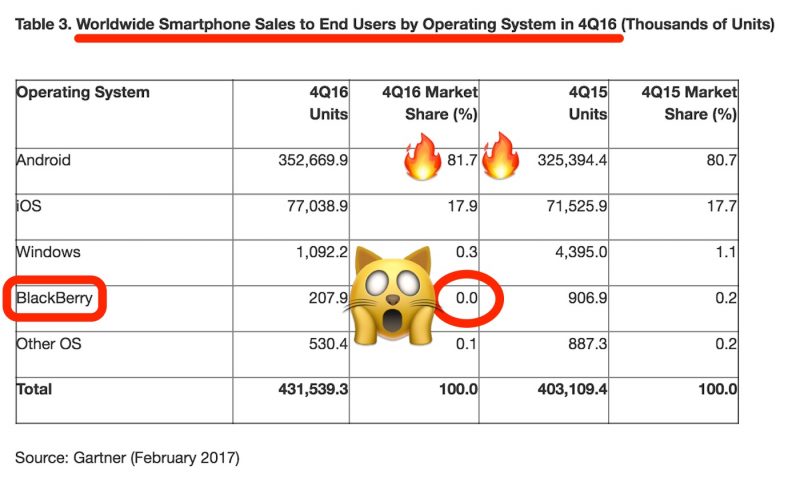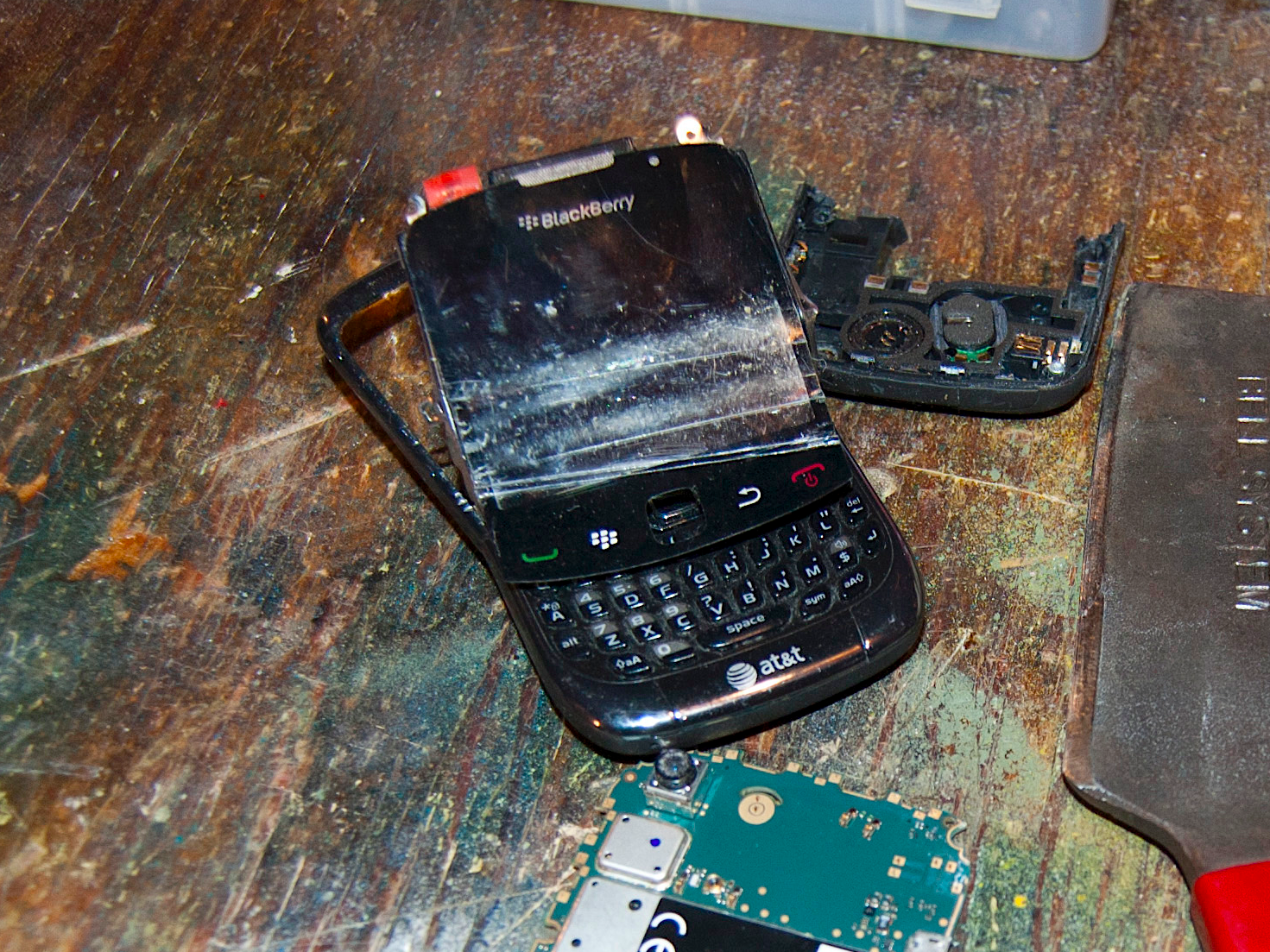It’s the end of an era: BlackBerry’s share of the global smartphone market is now 0.0%.
In the fourth quarter of 2016, more than 432 million smartphones were sold, according to a report published on Wednesday by the research firm Gartner. Of those, just 207,900 were BlackBerry devices running its own operating system.
That gives the Canadian smartphone company a share of the overall phone market of less than a single percentage point. To be precise, it’s 0.0481%.
In contrast, a whopping 352.7 million smartphones running Google’s Android operating system were sold in Q4 2016, making up 81.7% of the market, according to Gartner. In second place is Apple’s iOS, which sold 77 million units in the quarter, with 17.9% of the overall market share.
BlackBerry also sells handsets that run Android, like the DTEK60 and the Priv, which aren’t included in that 207,900 figure. But Gartner’s data confirms what we suspected: BlackBerry’s once unassailable independent phone ecosystem is dead in the water.
Meanwhile, Google dominates the numbers game because it gives Android to phone makers for free, making it the operating system of choice for low-cost handsets in countries like India and China. Apple, on the other hand, keeps its iOS in-house and its prices high - limiting its reach but maximizing its profits.

In the pre-smartphone era, a BlackBerry was the phone of choice for professionals, even earning the nickname "Crackberry" because of its addictive nature. With the BlackBerrys' full keyboards and email and messaging functionality, nothing else came close.

But the company was blindsided by the launch of the iPhone, and Apple stole its crown. The BlackBerry brand quickly lost its luster, and sales have been in slow decline ever since.
In September, BlackBerry announced it would no longer make its own phones, instead of relying on third-party partners for any future BlackBerry-branded devices. It released its first Android phone in October 2015.
As recently as the third quarter of 2016, BlackBerry's OS was still (just) showing up with market share in Gartner's data. Its Q3 2016 market share was 0.1%, with estimated sales of 377,800 devices.
Even when you include BlackBerry's devices running Android, its numbers are still incredibly low. Last year, CEO John Chen said the company sold only about 400,000 devices in the second quarter.
BlackBerry didn't release any phones that run BB10, its mobile operating system, in 2016. But the company insists the OS isn't dead.
"BB10 has a strong following around the world in enterprise and government, as well as consumers in particular markets," Alex Thurber, senior vice president of global sales, told the Financial Post in January. "I want to make sure that our customers and users don't get concerned that we're not continuing to support and invest in BB10 because we absolutely are."
In a statement, a BlackBerry spokesperson told Business Insider: "As has been widely communicated, our current strategy focuses on providing state-of-the-art software and security for enterprise and devices. As part of this aggressive pivot to software, we have shifted away from hardware and toward a licensing model where partners develop hardware and distribute and market the BlackBerry brand. We are very excited about the new BlackBerry branded smartphones that our licensing partners - TCL, BB Merah Putih and Optiemus - will soon be introducing."

